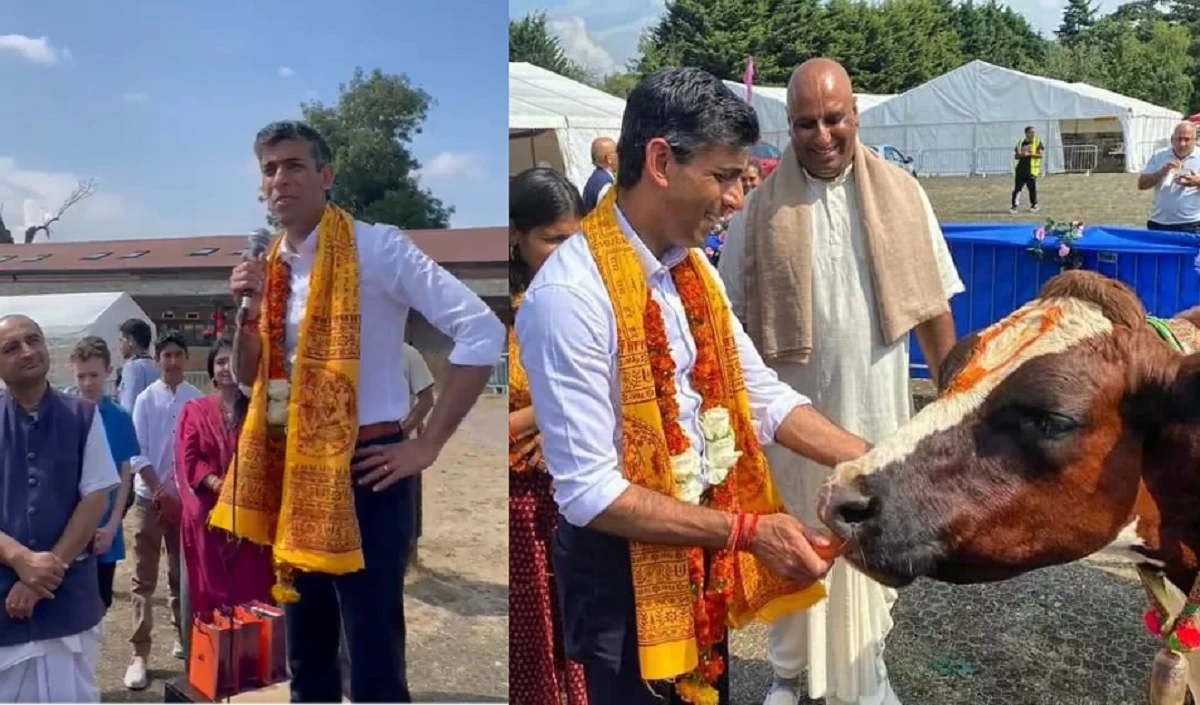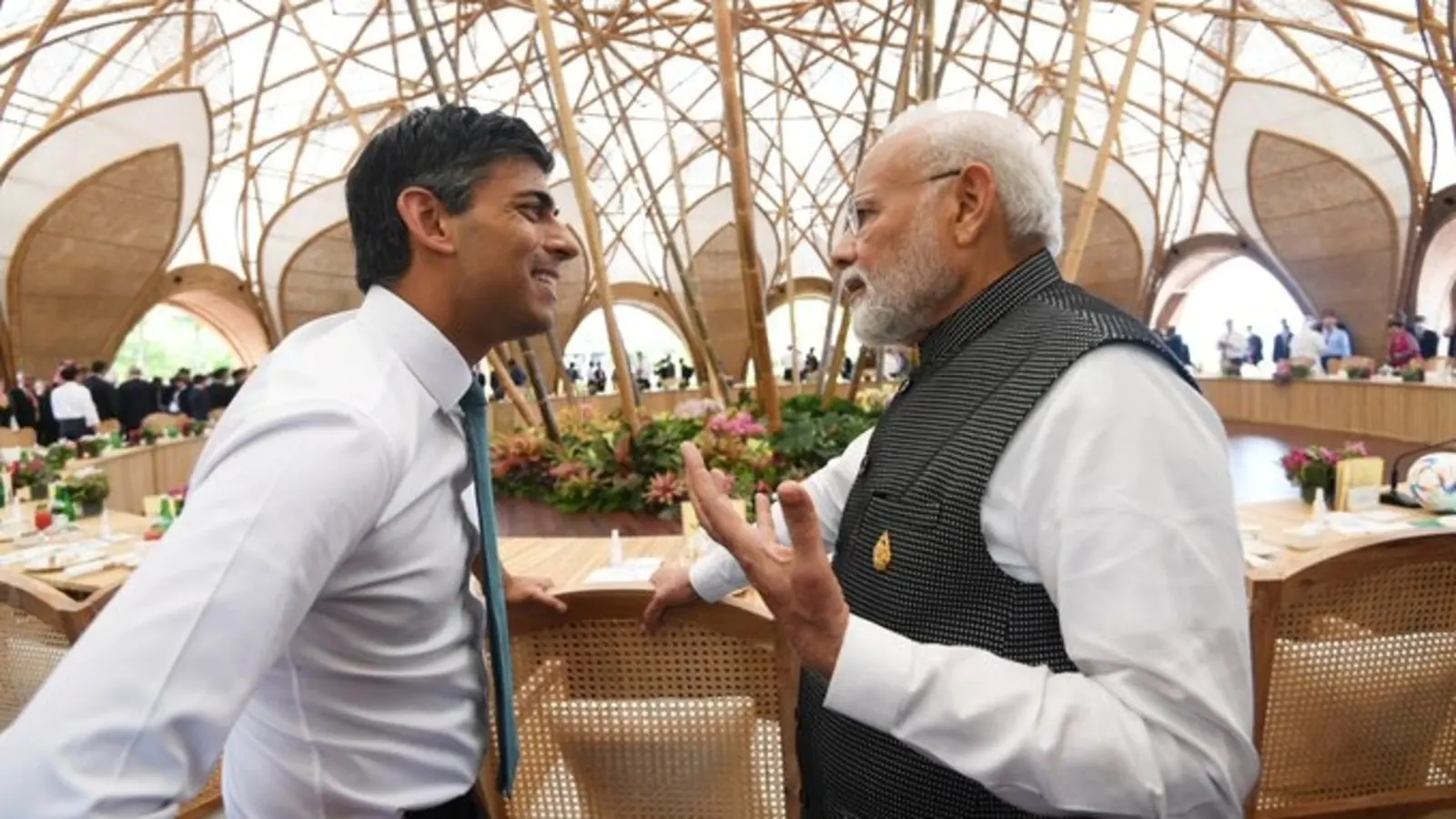By Muhammad Azhar Kaleem
The UK and India have announced the Young Professionals Scheme (YPS) as part of a broader agreement to promote ties between the two countries. This will open to up to 3,000 people a year from her 18 to 30 in India and the UK, although the two governments may decide to raise or lower the limit. Participants should have a university-level education relevant to their work and be able to express themselves in the language of their host country.
This YPS scheme has raised a lot of concerns in other developing countries like Pakistan, Bangladesh, and other states thriving hard to get skills from developed countries so they could bring their states into the race of developed countries by eliminating poverty, illiteracy, unemployment and could enhance the economy by foreign remittances. A lot of Pakistanis had been doing great in social development sectors after getting an education from U.S, U.K and other developed states. It has to be noted that Indians have already skilled professionals in IT, Engineering and Scientific fields.
Such discrimination between the developing states could lead to serious get back in their progress journey. India has a long rivalry history with Pakistan, and China and causing troubles in other specific regions and small states. Such a policy to empower India with more technological advancements and capital enhancements could lead these deteriorated relations more severe and sour and could raise tensions. India is already threatening neighbouring states because of its military muscles even if it is a developing state yet if it would become able to get sophisticated offensive and defensive systems then it could disturb the balance of power situation in the region.
Moreover, the Use of the Intra-Company Work visa has been controversial. Although there are criticisms of the use of the Intra-Company transfer route, there are also arguments for the way the current scheme works. The Indian IT companies also want to be able to bring workers to the UK under less restrictive conditions. These companies would love to be users of the new YPS as, unlike the existing Intra-Company Transfer route, there seem to be no minimum salary thresholds, maybe not even any monitoring of the jobs being done.
But how could these firms use the YPS if it is an individual scheme, probably over-subscribed, in which places are allocated by lottery? There is considerable overlap between the top users of the above and the Intra-Company Transfer route in the UK, while over 50% of the migrants using the H1B visa are from India. The use of this visa has also been controversial in the US for many of the same issues as have arisen in the UK: under-cutting American workers and outsourcing American jobs. In contrast, the YMS (and probably the YPS) is an individual-led visa where successful applicants are free to change employers. These applicants would be unlikely to change employers once in the UK when they have a permanent job back in India.
The restriction to Indian nationals will give Indian companies an advantage over other heavy users of the Intra-Company Transfer route. . The proposals lack some detail: how do visas have to be allocated if they are over-subscribed and what is the exact link to work, which is not in the YMS but seems more prominent in the YPS?
But there is a risk it ends up primarily benefitting a handful of companies and becomes something more like the Intra-Company transfer route but without the protections against under-cutting and outsourcing that route currently contains. That would be a bad outcome.

Rishi Sunak an Indian-origin prime minister of the UK is giving significant favours to India as compared to Pakistan. It has been observed that Sunk is a proud Hindu and firmly promotes Indians on every platform. Mr Sunk has to face criticism in this regard for giving such biasedness towards India. Some Political Pundits are questioning now whether Rishi Sunk is a Britain Prime Minister or Indian ambassador to the UK because he is serving Indian interests more than the interests of the UK. Such Favouritism towards his origin country has raised serious concerns in political circles all over the world. It has been noted that UK inclinations towards India have been raised hugely since Mr. sunk has controlled the charge of the prime minister.
Indians are very excited over this favour from Mr. sunk. They celebrated Sunak as a “proud Hindu,” saying he did not shy away from embracing his faith and Indian culture. They shared videos on Twitter showing Sunak taking his oath of allegiance as a lawmaker in 2020 on the Hindu holy book Bhagavad Gita.
Other videos shared on Twitter showed Sunak praying to a cow, considered holy by Hindus when he was running for Britain’s top job for the first time in August. In a Hindu ritual conducted in London, Sunak touched the cow’s feet while his wife offered carrots to it. Sunak also performed “aarti” in front of the cow — a Hindu ritual involving the waving of oil lamps.
Sunak has been public about his Indian origins — and his love for cricket. He has also talked about his abstinence from beef on religious grounds.
“I am thoroughly British, this is my home and my country, but my cultural heritage is Indian,” he told reporters in 2020.
The situation is becoming seriously intense because of the orthodox approach of Rishi Sunk. There are a lot of issues which have been pending for a long time like the Kashmir issue, water management problems with India which cause floods every year in Pakistan, and trade issues It also could not be figured out that Mr Sunk could pave the way to further deteriorated relations of Pakistan with US and UK by playing its political cards in favours of India.
If the UK has given such opportunities to India like PSY, Pakistan and other developing states should also deserve such kind of favours more desperately. Pakistan has contributed thousands of human lives of armed forces and civilians with huge loss of millions of dollars in collaborating the strategic partnership with the US, UK and NATO. Pakistan needs serious rewards in terms of trade benefits and the UK should also give Pakistan such opportunities as it has been offering to India.
(Muhammad Azhar Kaleem is writer and researcher from Islamabad).






